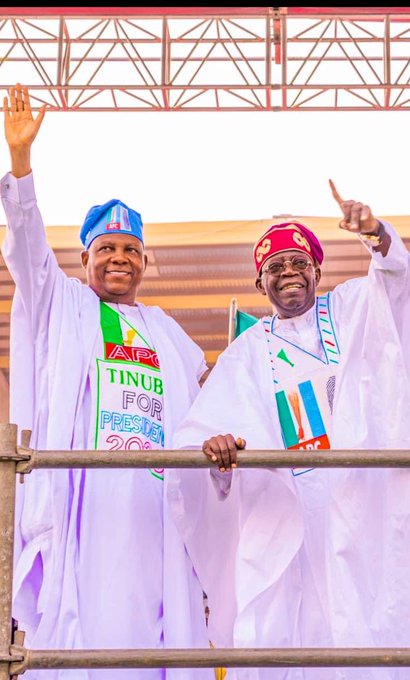In a bold appeal aimed at promoting transparency and accountability in Nigeria’s leadership, the Socio-Economic Rights and Accountability Project (SERAP) has urged President Bola Tinubu to request the Code of Conduct Bureau (CCB) to publish his declared assets. The advocacy group also called on the president to extend the same request to Vice President Kashim Shettima, ministers, National Assembly leaders, state governors, and the chairmen of the country’s 774 local governments.
This comes after President Tinubu’s remarks during his first Presidential Media Chat on Monday, where he expressed his willingness to consider asking the CCB to publish his assets. While this gesture has been seen as a step towards transparency, SERAP emphasized that it would be far more impactful if the President promptly acts on his words, setting a precedent for other top public officials in the country.
In a letter dated December 28, 2024, and signed by Kolawole Oluwadare, the Deputy Director of SERAP, the organization welcomed the President’s intention but stressed the urgency of translating this intention into tangible action. “Your ‘consideration’ would ‘carry more weight’ if you were to promptly translate the intent into action by asking the CCB to publish your assets,” the letter read. “Moreover, encouraging your vice president, ministers, the leadership of the National Assembly, governors, and local government chairmen to do the same would foster trust in the system.”
SERAP’s call for asset transparency comes in response to widespread concerns about corruption within the Nigerian government. The organization argues that the secrecy surrounding asset declarations of high-ranking public officials continues to enable corrupt practices, particularly in the 36 states, the Federal Capital Territory, federal ministries, and local governments.
According to the rights group, the lack of transparency in the asset declaration process is a significant factor contributing to the abuse of public funds. “The secrecy in asset declarations provides the biggest opportunities for the misuse of public resources for private gain,” SERAP noted in its letter to the President.
By urging for the publication of assets, SERAP believes that the government can significantly reduce opportunities for corruption and ensure that public officials are held accountable for their wealth and finances. The organization points out that this move will have a ripple effect, setting a standard for future leadership and governance in Nigeria.
But SERAP’s call for transparency does not stop at just asset declaration. In its letter, the group emphasized the need for the President to address the ongoing issue of local government autonomy. SERAP referenced the Supreme Court’s landmark decision on July 11, 2024, which stopped state governors from illegally taking over local government funds. However, the group asserts that transparency and accountability in Nigeria’s local governments will not be achieved unless the President takes further action in enforcing this ruling.
“Transparency and accountability in states and local governments won’t happen without the President pushing for the immediate and effective implementation of the Supreme Court decision,” SERAP stated.
The organization has also urged the President to take the lead in implementing reforms at all levels of government, from the federal to local governments. For instance, ensuring that governors and local government chairmen make their assets public could send a powerful message about the government’s commitment to anti-corruption efforts. “This would promote and ensure public trust,” SERAP concluded in the letter.
Public reactions to SERAP’s demand have been mixed. Some Nigerians have expressed support for the call for asset transparency, believing it could be a critical step in the fight against corruption in the country. “We need our leaders to lead by example,” said Musa Ibrahim, a Lagos-based civil society activist. “If the President, Vice President, and governors openly declare their assets, it will be harder for them to hide corrupt practices. Transparency should be the norm, not the exception.”
Others, however, remain skeptical about the willingness of political leaders to comply with such a request. “We’ve heard similar promises before, but nothing happens,” said Nkechi Okoro, a government employee in Abuja. “Until there’s real enforcement, these calls for transparency will remain empty rhetoric.”
Despite the skepticism, SERAP’s call represents a growing demand for greater accountability within Nigerian political circles. In recent years, civil society organizations and anti-corruption advocates have continued to pressure both the federal and state governments to enact reforms that would ensure public officials are held accountable for their actions.
One notable development in the fight against corruption was the recent push by the Economic and Financial Crimes Commission (EFCC) to investigate public officials suspected of illicit wealth accumulation. The publication of assets could potentially aid in these investigations, offering transparency into the financial backgrounds of Nigeria’s top politicians.
In the context of Nigeria’s economic challenges, the demand for transparency has become even more pressing. Corruption remains one of the major barriers to economic development and the efficient use of public funds. With billions of naira lost annually to corrupt practices, the government faces growing pressure from both domestic and international actors to reform its anti-corruption efforts.
At the heart of SERAP’s request is the notion that public trust cannot be achieved without transparency. By publishing their assets, Nigeria’s leaders would demonstrate their commitment to fighting corruption and ensuring that the wealth of the nation is used for the benefit of all citizens.

